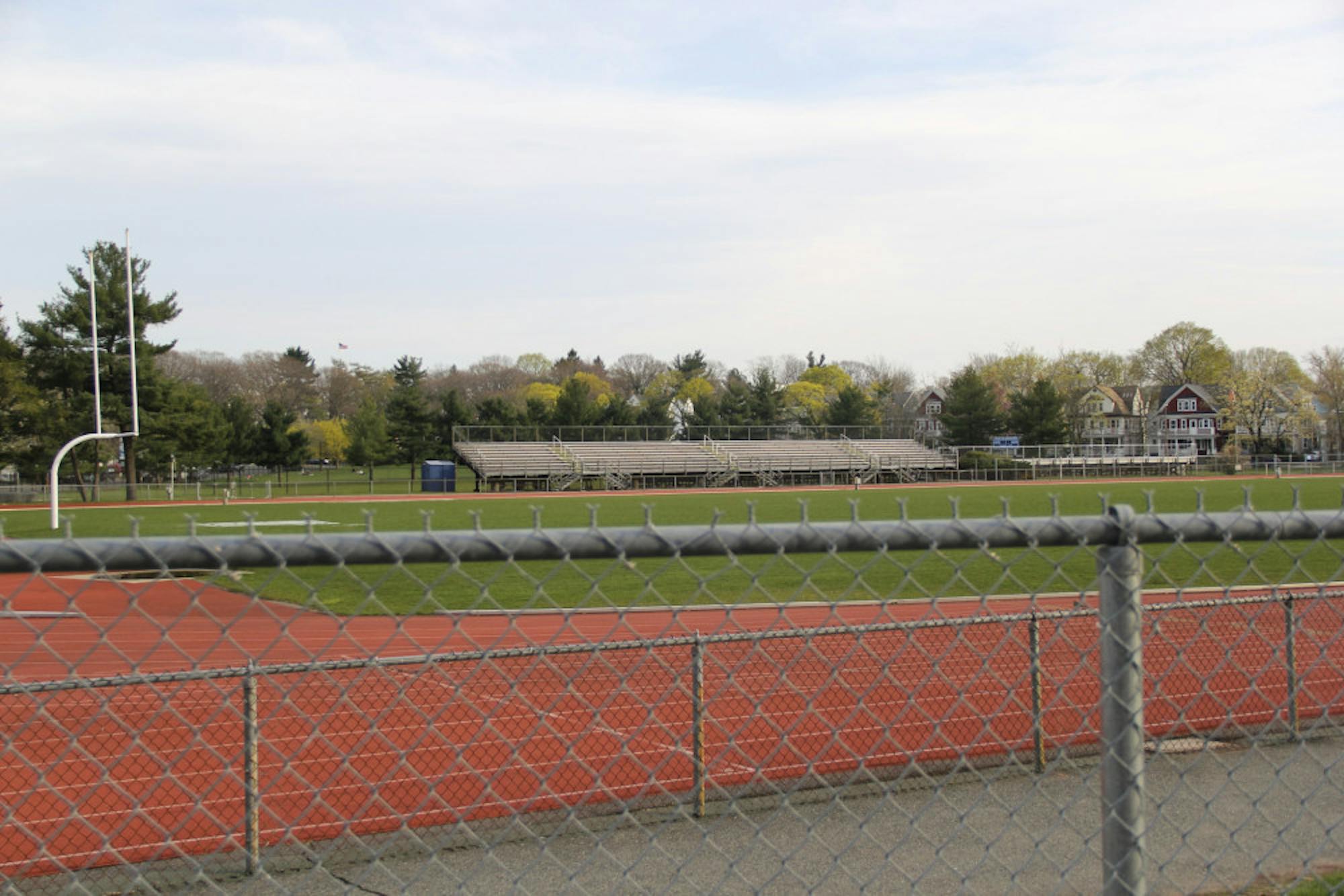In an email addressed to students on Feb. 28, University Infection Control Health Director Michael Jordan announced updates to COVID-19 protocols at Tufts. Among them was a relaxation of a previous rule prohibiting in-person varsity athletic practices. Jordan said that varsity teams could begin to meet in person so long as they abide by physical distancing measures.
A week and a half before this announcement, the Ivy Leagueannounced on Feb. 18 that all spring sports will be canceled.
Tufts and the NESCAC waited for the Ivy League to make a decision on the fate of winter sports before canceling the season on Oct. 8. While optimistic COVID-19 data may paint a rosy outlook for competitive spring athletics, this precedent could suggest a grimmer prospect.
The case of Tufts’ spring athletics is just an isolated example among a greater national uncertainty regarding the tricky overlap between COVID-19 and sports.
Members of the Daily’s Sports section filled out a brief survey regarding the COVID-19 and sports overlap, ranking their confidence levels in various scenarios on a scale of 1 to 5. Consider this the section’s collective reaction to national news.
College Athletics
The NCAA has recently announced plans for their annual — 2020 notwithstanding — men’s and women’s college basketball tournaments, popularly known as March Madness.
To avoid travel complications, the NCAA’scontingency plan will see the tournaments restricted to a single state — the women’s tournament will be in Texas and the men’s tournament in Indiana. If a team faces a COVID-19 induced restriction, they are to be replaced seed-for-seed with the highest-ranked non-tournament qualifier.
The 19 Daily staff members polled expressed varying levels of confidence in the NCAA's ability to execute tournaments of a usual standard. While eight of 19 (41.9%) polled expressed a confidence level of 4 or greater, six foiled that tally with a score of 2 or lower. Another five were in the middle, at 3.
Confidence in a competitive spring season for Tufts athletes was not as high. Thirteen respondents (68.4%) expressed a certainty level of 2 or lower on whether student-athletes will have a competitive season. Only one respondent answered with a 4 and none with a 5.
The NBA
The NBA’s postponement of Tuesday’s contest between the Detroit Pistons and the Toronto Raptors marked the league’s 32nd rescheduling, around 5% of all games in total. Along with numerous Toronto coaches, Raptors head coach Nick Nurse and 2020 All-Star forward Pascal Siakam have both been sidelined for several daysdue to positive tests and contact tracing protocols.
In 2020, the league famously hosted their playoffs in a bubble, where qualified teams remained isolated in Orlando’s Walt Disney World. When asked if the NBA can avoid a similarly styled bubble for the 2021 playoff, 11 of 19 respondents (57.9%) expressed a confidence level of 4 or higher.
Meanwhile, the league’s decision to host All-Star events, which will take place on March 7 in Atlanta, has been met with mixed reviews in the press.
“No decisions during this pandemic come without uncertainty and come without risk,” NBA Commissioner Adam Silver said in an interview withESPN. “This is yet another one of them, and yet it's my job to balance all those interests and ultimately it feels like the right thing to do to go forward.”
Keisha Lance Bottoms, the mayor of Atlanta, has asked fans not to travel to attend the All-Star events.
“I know that the NBA is taking all precautions necessary to make sure that they are not the source of a super-spreader event, but we know that there will be people who will travel to Atlanta because the All-Star game will be there,” Bottomssaid in a statement.
When asked to what extent they agree with the decision to hold an All-Star game, survey respondents were well dispersed. Five respondents (27.8%) answered with 1 (for the level of confidence), another five answered with 2 and yet another five answered with 3. One respondent answered with a 5.
Fans in the stands
The MLB’s Tampa Bay Rays announced a tentative plan to allow 7,000 fans for the beginning of the season at their home park, Tropicana Field.
According to ESPN, leading infectious disease expertDr. Anthony Fauci suggested that it “would likely take 75-80% of the population being vaccinated with the rate of infection staying very low” before MLB should feature full stadiums.
When asked about the likelihood of full baseball stadiums by October — the time of MLB’s postseason — 14 of 18 respondents (77.8%) answered with a 1 or 2 for the degree of confidence.
When asked about their own preferences regarding attending professional sporting events, 10 of 19 (52.6%) Sports section respondents expressed a comfort level of 4 or 5 at attending a reduced-capacity indoor event. However, only two respondents (10.5%) expressed the same level of comfort if the indoor event had 50% or greater capacity.
The margin was slightly tighter concerning outdoor events: With a limited capacity, 13 of 19 respondents (68.4%) expressed a comfort level of 4 or 5. Only six of 19 (31.6%) selected the same answer for 50% or greater capacity.






